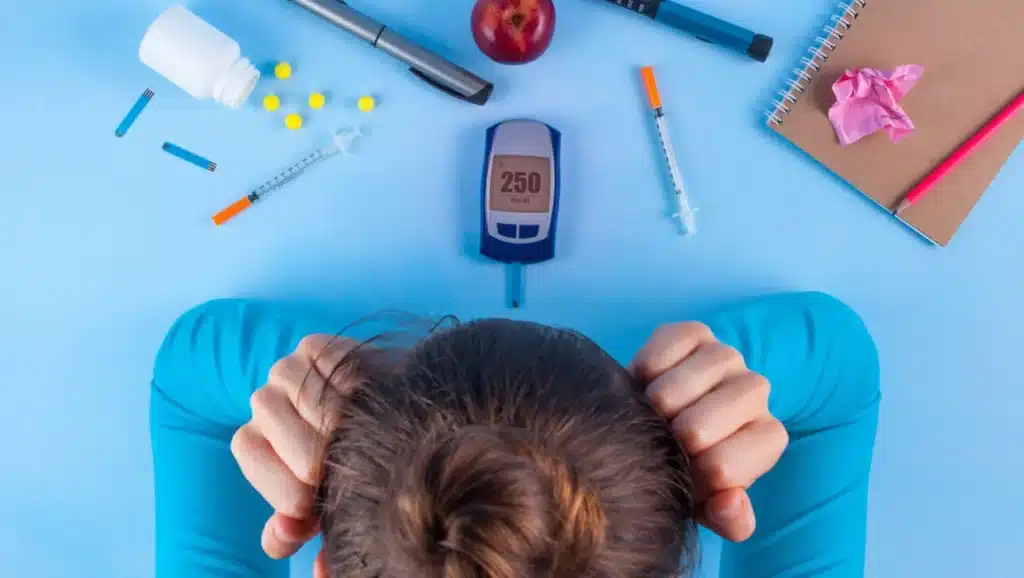Unraveling the Complex Connection of Diabetes and Depression
In the mosaic of human health, the fusion of physical and mental well-being is intricate and impactful. One such intersection involves the intricate relationship between diabetes and depression, two formidable health challenges whose convergence creates a distressing cycle affecting millions worldwide.
Peering into the Connection
Diabetes, marked by high blood sugar levels, disrupts the body’s glucose regulation. Depression, a complex mental health disorder, manifests as persistent sadness, loss of interest, and a pervasive sense of hopelessness.
The interlink between these seemingly distinct conditions transcends coincidence. It involves biological, psychological, and lifestyle factors that weave a complex web.
Tip: Please fill out the form if you or a friend would like more information on blood glucose monitoring devices.
Unveiling the Links
Biologically, diabetes and depression intertwine through hormonal and neural pathways governing both. Chronic inflammation linked to diabetes might influence brain function and neurotransmitter activity, potentially contributing to depression.
Psychologically, managing diabetes—constant monitoring, dietary restrictions, and potential complications—can heighten stress levels, elevating the risk of depression.
Don’t miss the Guide about Wegovy Dosage Guide: The Best Way For Weight Loss
Lifestyle Contributions
Lifestyle also plays a pivotal role. Sedentary habits, poor diets, and inactivity contribute to both conditions. The challenge of adhering to diabetes management might exacerbate frustration and distress, worsening or triggering depression. Conversely, depression might diminish the motivation for self-care, fueling a detrimental cycle.
The Vicious Cycle
This relationship often forms a vicious cycle. Diabetes increases the risk of depression due to the physical and psychological burdens it imposes. Conversely, depression compromises diabetes management, impacting medication adherence, diet, and physical activity, thereby worsening blood sugar control.
Must Read CGMs in noncritical care hospitals optimizes glycemic control
Holistic Care: A Necessity
Recognizing this interconnection is the initial step toward comprehensive care. Addressing both conditions concurrently can significantly enhance outcomes. Integrated treatment plans encompassing medical interventions, psychological support, and lifestyle modifications break the cycle, empowering individuals to manage their health effectively.
Supporting Mental Health
For individuals battling both diabetes and depression, mental health support is paramount. Counseling, therapy, and support groups offer a safe space to navigate emotional struggles, develop coping mechanisms, and foster a sense of community.
Role of Healthcare Providers
Healthcare providers play a pivotal role by identifying depression signs in those with diabetes and ensuring timely interventions. Promoting healthy lifestyle changes—encouraging physical activity, balanced nutrition, and stress management—is crucial in managing both conditions.
Empowering through Education
Educating individuals about the intricate link between diabetes and depression empowers informed choices, prioritizing mental and physical well-being.
Also, read about Skin Scanner and AI Integration Using RSOM
A Call for Comprehensive Healthcare
The nexus between diabetes and depression underscores the need for holistic healthcare—an approach addressing the intricate interplay between physical and mental health.
By acknowledging the factors intertwining these conditions and offering integrated care, we strive to break the cycle, fostering a brighter future for those affected.
Through education, awareness, and empathy, bridging the gap between diabetes and depression leads to a healthier, happier society for all.


